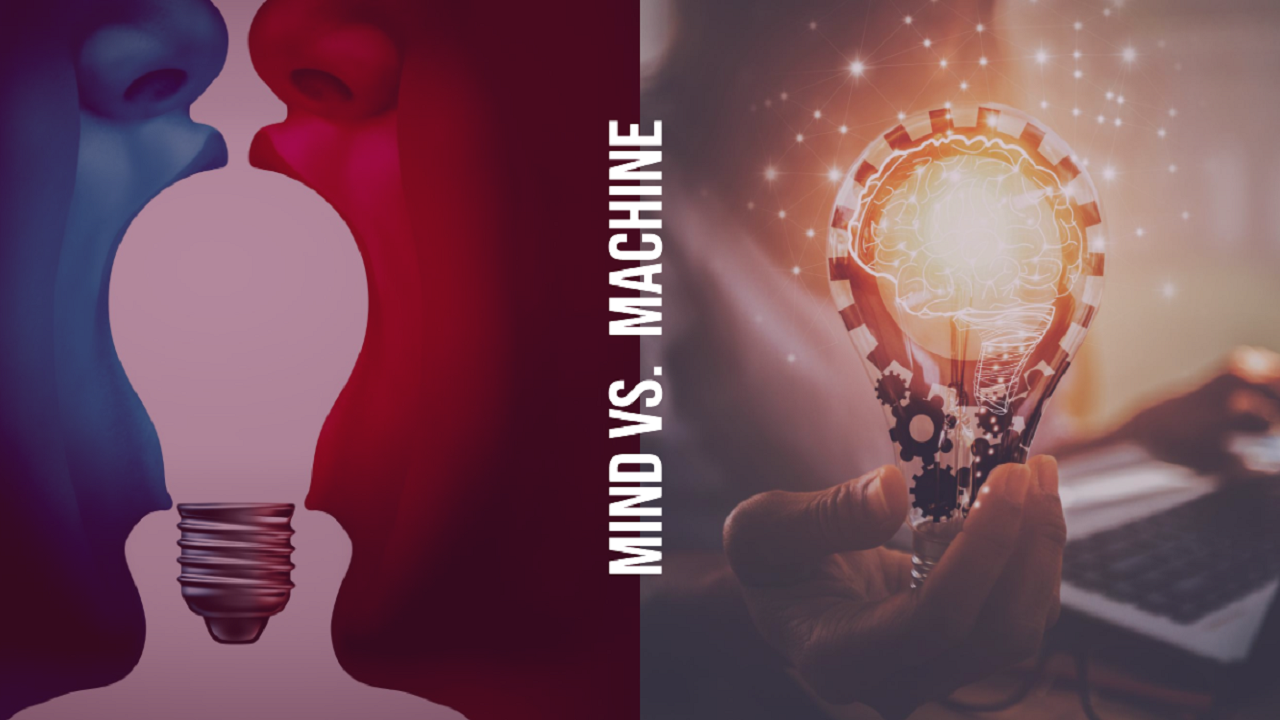Mind vs. the Machine: Artificial Intelligence and Human Decision Making
This blog explores the intriguing clash between human decision-making and artificial intelligence (AI). It delves into the evolution of AI and the complexities of human choices, discussing the advantages and limitations of both approaches. The article suggests the potential for synergistic collaboration between AI and humans while emphasizing ethical considerations and the need for human oversight. It envisions a future where AI enhances human decision-making rather than replacing it, promoting responsible integration for progress and possibilities.

In the rapidly advancing world of technology, the clash between the human mind and artificial intelligence has become a compelling and thought-provoking topic. As AI capabilities continue to grow exponentially, it poses an intriguing question: Can machines ever truly rival or even surpass the complexities and nuances of human decision-making?
The Evolution of Artificial Intelligence
Artificial Intelligence, often referred to as AI, has evolved significantly over the years. From its initial stages, where it was limited to simple tasks, AI has made tremendous strides in complex problem-solving and decision-making. Thanks to machine learning algorithms and neural networks, AI systems can now process vast amounts of data, learn from it, and optimize their decision-making abilities.
Understanding Human Decision Making
Human decision-making is a multifaceted process that combines rationality, emotions, intuition, and past experiences. Our decisions are influenced by a plethora of factors, such as cultural background, personal values, social context, and even our mood at the time of decision-making. This intricate interplay of variables makes human decisions deeply complex and often challenging to predict.
The Advantages of AI Decision Making
AI offers several advantages over human decision-making. Firstly, machines can analyze vast datasets quickly and accurately, enabling them to detect patterns and trends that humans might miss. This capability has proven invaluable in fields such as healthcare, finance, and weather forecasting.
Secondly, AI is not prone to human biases. Human decisions can be influenced by unconscious biases, stereotypes, and emotions, which can lead to unfair outcomes. AI, when designed and trained properly, can make decisions based solely on data and objective criteria.
Additionally, AI can handle repetitive tasks with remarkable efficiency and consistency, minimizing errors and improving overall productivity. This frees up human decision-makers to focus on more strategic and creative endeavors.
The Limits of Artificial Intelligence
Despite the remarkable progress in AI, machines still face significant limitations in replicating human-like decision-making. Emotions and empathy, which are crucial aspects of human choices, remain elusive to AI systems. While they can simulate empathy based on predefined patterns, they lack genuine emotional understanding.
Furthermore, AI operates within the bounds of its programming and data inputs. It cannot go beyond what it has been explicitly designed to do or consider unanticipated circumstances, as human minds often can. Contextual understanding, ethical reasoning, and the ability to ponder moral dilemmas are areas where human decision-making continues to outshine AI.
The Potential for Synergy
In contrast to a rigid "mind vs. the machine" narrative, a remarkable opportunity is emerging for human-machine collaboration. AI is poised to complement human decision-making rather than supplant it, fostering a harmonious partnership that leverages the unique strengths of both. By leveraging the strengths of both, we can harness AI's speed, accuracy, and data processing capabilities while incorporating human insights, creativity, and ethical judgment.
One promising avenue for collaboration is the use of AI as a decision support tool. For example, in medical diagnosis, AI can assist doctors by analyzing medical images and providing potential diagnoses, which physicians can then validate and refine based on their expertise and patient interactions.
Ethical Implications and Caution
As we integrate AI into various aspects of society, we must be mindful of ethical considerations. AI-powered decision-making systems should be transparent, interpretable, and held accountable for their actions. The potential for bias in AI algorithms requires constant vigilance to ensure that they do not perpetuate existing inequalities.
Additionally, the reliance on AI for critical decision-making must not lead to blind trust in machines. Human oversight is essential, and humans should always retain the final say in matters that significantly impact individuals and society.
Conclusion
The battle between the human mind and artificial intelligence in decision-making is not about one replacing the other. It's about recognizing the unique strengths and limitations of both and finding ways to synergize their capabilities. As AI continues to advance, we must embrace it responsibly, using it as a tool to enhance human decision-making rather than an all-encompassing replacement. By doing so, we can build a future where AI and human intelligence harmoniously coexist, ushering in a new era of progress and possibilities.









